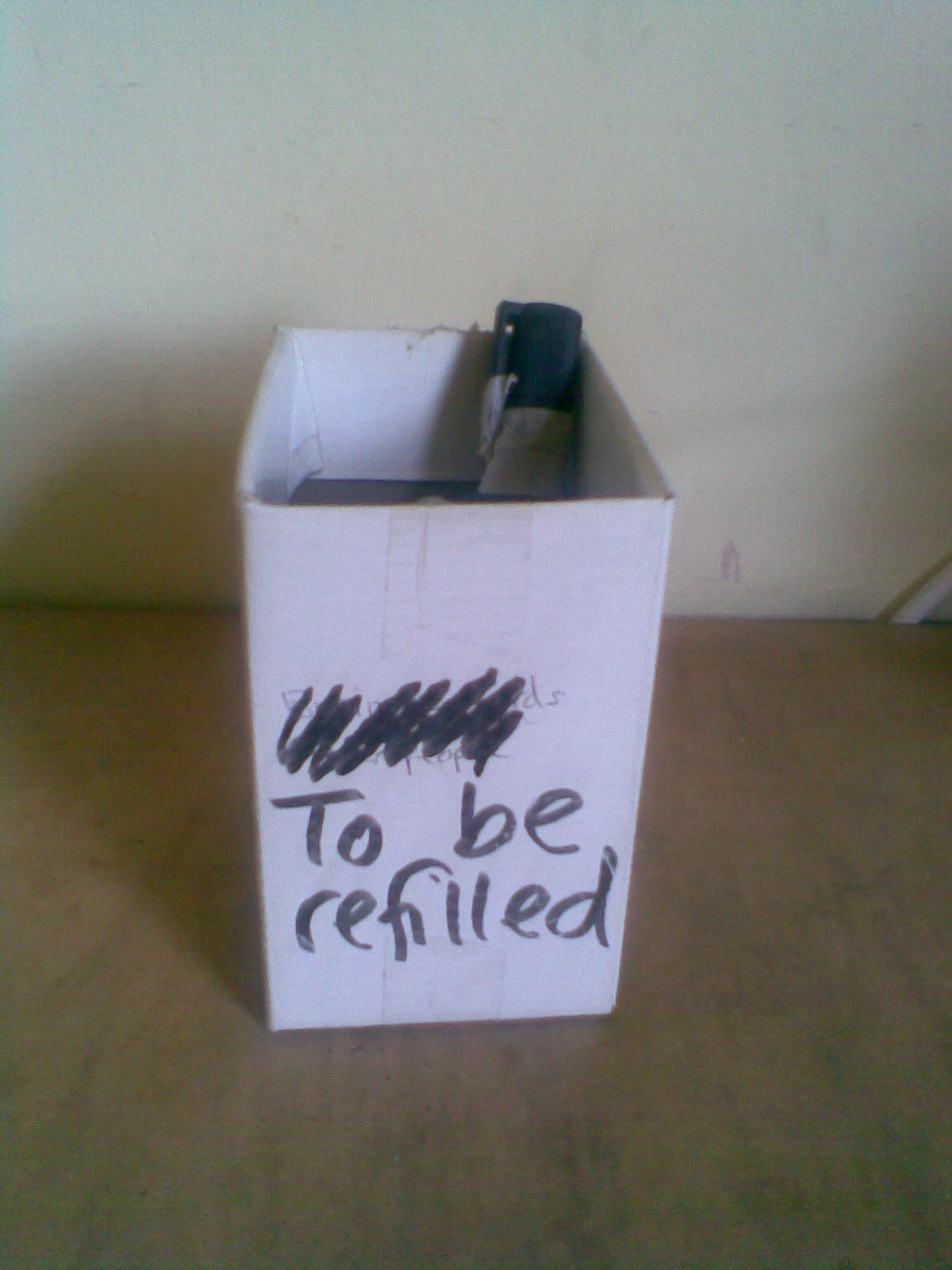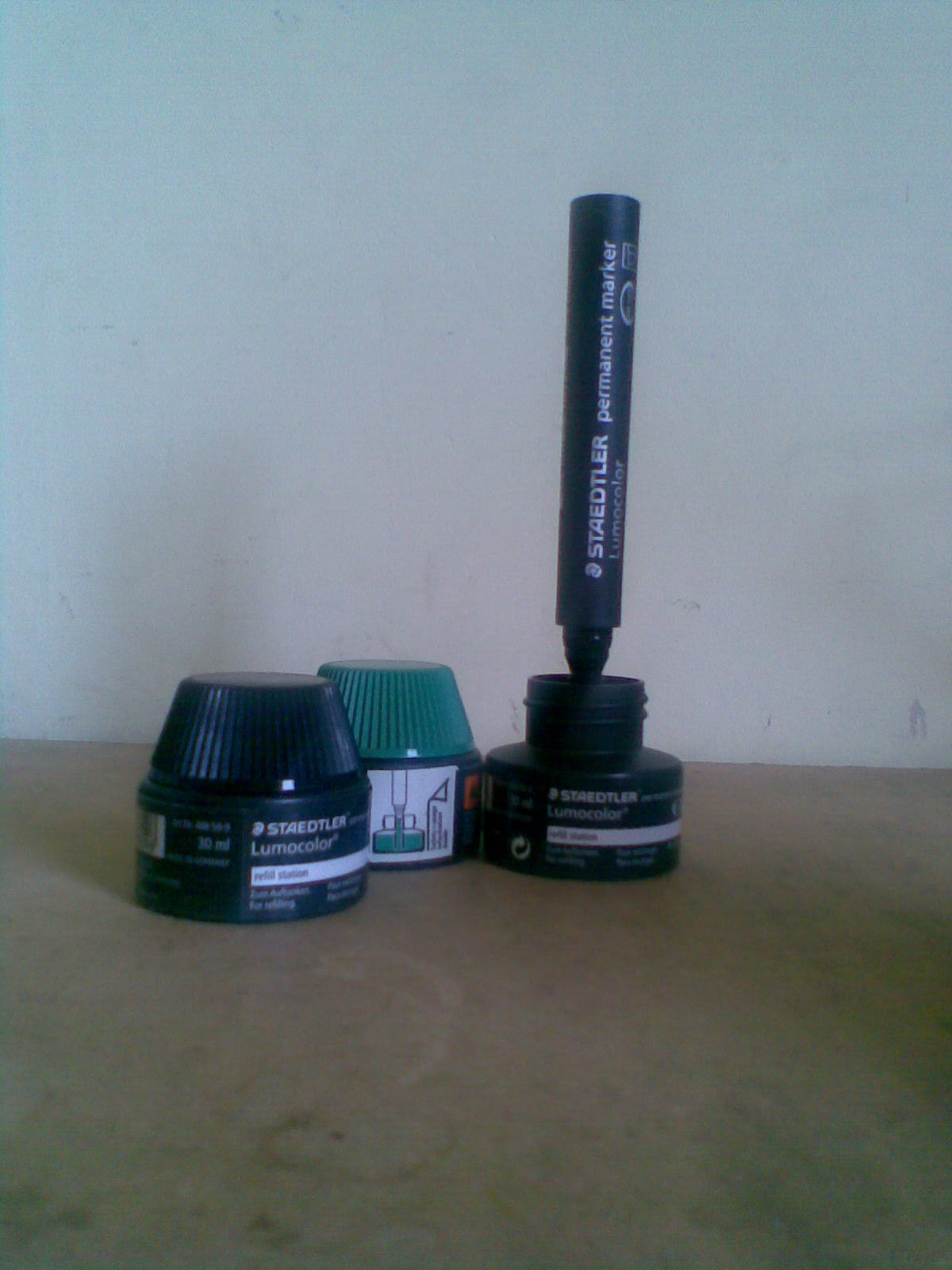Last time I flew for work was in 2007, running a workshop in the Netherlands. I had tried to find a way to go by boat and train, but couldn't make the timings fit in with other commitments. The last time I flew for pleasure was so long ago that I can't remember. I have turned down all work that involves flying since then, but without being up-front about this. I say I'm unavailable or "I'm sure you can find someone locally" . And I try to help them do just that: a great reason to network internationally and to keep in touch with people who I've come across over the years who understand both process and sustainable development, or may know someone who does.
Being up-front
On a coaching course this year, we did a pairs exercise about 'boundaries'. We had to identify a time when we had noticed a boundary and maintained it. We were invited to illustrate this. As I drew the picture I realised that flying was emerging as a boundary for me. It has been a value-in-action and I can choose to make it an espoused value too. In that realisation I decided to make it an explicit aspect of my work.
The illustration I drew at the time shows this through the picture of sealed charter which makes 'not flying' a clear part of how I do business.
Since then, I've included this in the 'walking the talk' statement on this website, and in an updated discussion document which I share with new clients which sets out how I intend we will work together. (This latter also includes a range of other 'draft ground rules' for our consultant-client relationship: things like honesty, collaboration, learning from feedback, acting in good faith and so on.)
Testing my commitment
I've had a chance to test out this espoused value in two different situations recently.
One is a new client is based in the UK and the USA. I set out up-front (before putting in a proposal) that I would not travel to the USA as part of this assignment. I felt some trepidation in doing this: might I lose the work? Reflecting further I realised that this outcome was not, surprisingly, such a big worry for me as I'm turning down work at the moment and I knew I didn't want the work if it meant flying. The bigger source of my anxiety was that these people who I'd only just met might they think badly of me. They might interpret my refusal to fly as a criticism of them - they almost certainly are obliged to fly for work. They might simply think me wildly eccentric. (One day I'll blog on the EAFL meme : "environmentalists are **** loonies" ). They might worry that association with me would make their colleagues think this about them.
I'm being very frank here - explaining my worries discretely even though I know they were quite murky at the time before I was able to pin them down precisely.
The new client was not put off, although I will continue to watch for the impact this stance has on our relationship, as well as the practicalities of the project. Our first multi-continent workshop was run using impressive video presence facilities, and I'll blog about that separately.
The second challenge came about because I wasn't really paying attention!
I am working on stakeholder engagement for the UK's first Climate Change Risk Assessment. As part of this, there are workshops for stakeholders in the Devolved Administrations - Scotland, Wales and Northern Ireland. I agreed to facilitate these workshops as part of a team, with the workshops distributed between us. Only later did I realise that - of course - Belfast is usually accessed from other parts of the UK by plane, these days. As luck would have it, the Belfast workshop is the one date that I could do. Could I get there without flying? Fortunately I had a full day with no meetings on either side of it, allowing slow travel.
I checked the cost of travelling by train and ferry, using the legendary Man in Seat 61 website. I also checked the travelling times, and worked out that two nights accommodation were probably needed, not one. I resolved that I would absorb the additional expenses if they proved to be higher than those of my flying colleagues, and not charge for the longer travelling time.
Armed with these mitigations, I raised my 'no flying' commitment with my immediate client (the consultancy I am sub-contracted by). They seemed fine with it. And - thanks Sarah, you're a star - one of my facilitator colleagues said she'd travel with me too.
I still feel a bit funny about this choice to go by train and ferry rather than flying. It takes much longer. And if we miss a connection, or there's a storm at sea, people may criticise me for choosing a less reliable way to travel. It feels like an experiment which could go wrong.
And I have read and re-read this blog entry, afraid to click 'publish', for some weeks now!
Experimenting with 'being the change'
I know that for many people, deciding not to fly for work would be a seriously career-limiting decision. The way we organise our working lives and our international organisations is now so dependent on being able to travel very long distances or across seas fast, that using only surface transport would be very inconvenient. Even within the UK, there are lots of journeys which involve moving from one island to another, where boat is slower and - ahem - more bilious than flying.
I have the great good fortune, though, to be in a position to say 'no' to flying for work even as I recognise that this is not an option for many of the people I work with. So I can be an experimenter, someone who tries out what a world with seriously reduced dependence on aviation might look like. And if I can do it, perhaps I should.
How are people taking it?
The reaction from people who I've told about this has been an interesting range. Some applauded and said "I bet your clients love it, because you're really walking the talk". Some said "that's a long time to be away not earning". Others said "that's really interesting, I'd like to experiment like that, tell me how it goes".
I'm going to actively reflect on this experiment, and I'll tell you how it goes.




